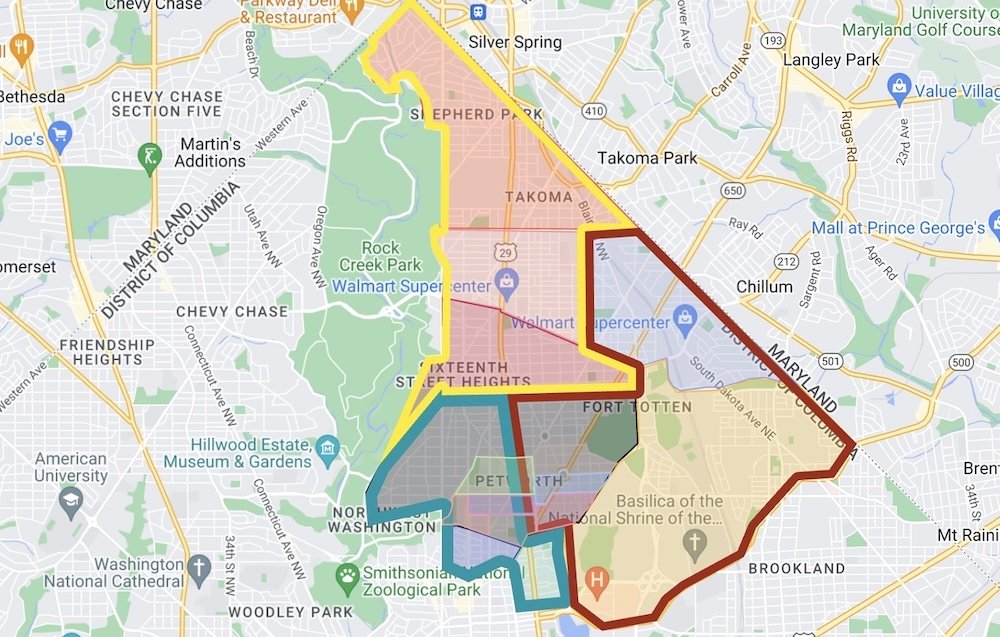Making composting easy for a better future
/Kathleen Brophy at the compost bin
by David Guier
guest contributor
Kathleen Brophy wants you to know how easy composting is in DC – and how important.
It’s easy, Kathleen says, because the DC government makes it easy! Under the city’s Zero Waste DC program, there are compost drop-offs at farmers’ markets in all eight Wards (like the Uptown Farmer’s Market at 14th & Kennedy Street).
Materials accepted there include fruit and vegetable scraps, coffee grounds and tea, grains, beans, cereals, eggshells, and cut and dried flowers. Just drop off your food waste every Saturday from 9am to 1pm and be on your way.
Food waste drop-off at Uptown Farmers' Market
For the more dedicated composter, the DC Department of Parks and Recreation has set up a Community Compost Cooperative Network with compost sites all over the city, 50 in all. Each cooperative compost site can handle up to 100 active composters and around one ton of material a month. This means DC residents could be composting up to 50 tons a month of organic matter.
This is where Kathleen spends part of her free time, as Compost Manager at the Hamilton Street Compost Garden. One of her responsibilities is to train new members in the ways of cooperative composting. This training takes about 30 minutes and requires a commitment during the warm season of around one hour a month to help process compost.
“For some reason people feel very intimidated by composting,” Kathleen says. “But I’ve talked to many people before and after they started, and it’s always easier than they expected.”
Right now the Hamilton Street garden has around 30 members, so there’s room to grow.
Composting is important, Kathleen explains. She’s concerned about all the waste that gets sent to landfills or to burning facilities. And it’s true, DC residents generate around 800,000 tons of waste each year, more than one ton per person!
Hamilton Street Compost Garden
Although 600 tons of organic matter a year isn’t much compared total amount of waste DC generates, it’s a good start on not only the waste problem, but also on the climate crisis. That’s because when organic matter ends up buried in a landfill, it decomposes anaerobically (without oxygen). Anaerobic decomposition generates methane, up to 70 times more potent as a greenhouse gas than CO2.
“As we think about the future of living in cities, we need to have more deliberate conversations about our waste,” says Kathleen. “If people can just get the idea of composting in their head, it’s going to become much more popular from the basis of necessity in our future.”
Composting is a win from every perspective – for people who want a cleaner, greener city, for the composter, for the gardener, for those who just like to be outdoors. But perhaps most important, from the perspective of our changing climate, composting is a win for our children and grandchildren.
David Guier is a long-time resident of Washington DC in 16th Street Heights and tries to be active in the city’s community garden and compost space. He has three young grandchildren, and worries for their future.




















